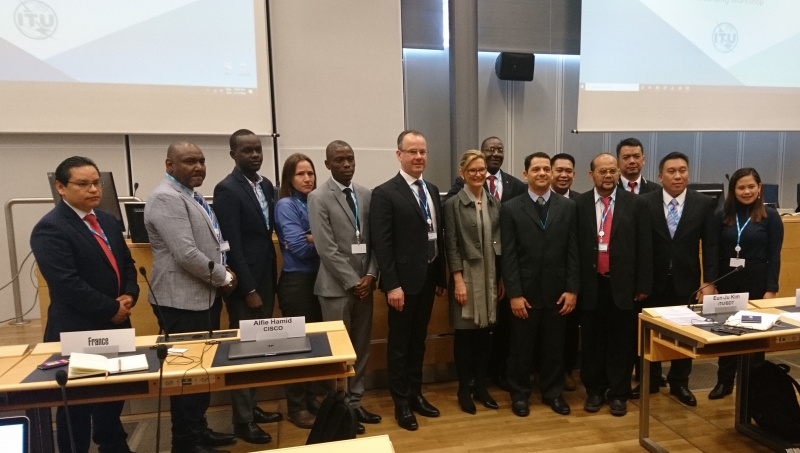Template:About DTCs
About DTCs
Background
copied from: https://academy.itu.int/main-activities/digital-transformation-centres-initiative
The Digital Transformation Centres Initiative was launched by ITU in partnership with Cisco in September 2019 during ITU Telecom World held in Budapest, Hungary. The initiative seeks to create a global network of centres, whose main purpose is to develop digital skills mainly at basic and intermediate level for citizens. The initiative contributes to the broader goal of building an inclusive digital society, and ensuring that lack of knowledge and skills is not a barrier to participation in the digital economy.
- read DTC newsletter: https://academy.itu.int/sites/default/files/media2/file/DTC%20newsletter_1_edition.pdf
First Phase
10 DTCs have been selected for the first phase which will run for 18 months from January 2020 to end of July 2021. The 10 DTCs have been selected from Africa (4), Americas (3), and Asia Pacific (3) regions. At the end of the first phase, an open call will be made for more potential DTCs to join the network.
The first ten DTCs are:
- Ghana Investment Fund for Electronic Communication (GIFEC), Accra, Ghana
- Rwanda Information Society Authority (RISA), Kigali, Rwanda
- SMART Zambia Institute, Lusaka, Zambia
- Ecole Multinationale Supérieure des Postes, Abidjan, Côté d'Ivoire
- UNITECH/Datec Learning Center, Port Moresby, Papua New Guinea
- DICT-Valenzuela Campus, Manila, Philippines
- Balai Pelatihan dan Pengembangan Teknologi Informasi dan Komunikasi (BPPPTIK), Bekasi, Indonesia
- Instituto Federal de Brasilia (IFB), Brasilia, Brazil
- Colegio Técnico Nacional de Asunción, Asunción, Paraguay
- Centros Tecnógicos Comunitarios, Santo Domingo, Dominican Republic
Examples of Courses
presented by Cisco
- Digital Citizenship, e.g. literacy, office applications
- Emerging technologies, e.g. security, linux, IoT, connectivity
- Basics of infrastructures, e.g. cellular and wireless connectivity, computer assembly, IT essentials
- Multimedia, e.g. photoshop, video editor
- Maker culture, e.g. 3D modelling, blender, Arduino, Raspberry Pi
- Cisco Academy, CCNA1, 2,3
- Oracle Academy, Java
- Programming APP with Android, video games, C#, Phyton
- Human development, entrepreneurship and ICT tools
- Innovation and entrepreneurship, including economics, financial education, leadership
